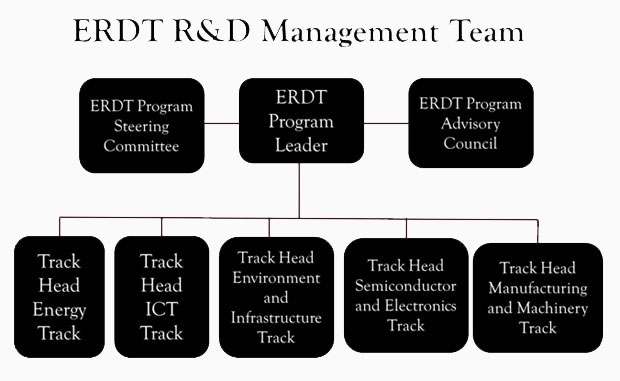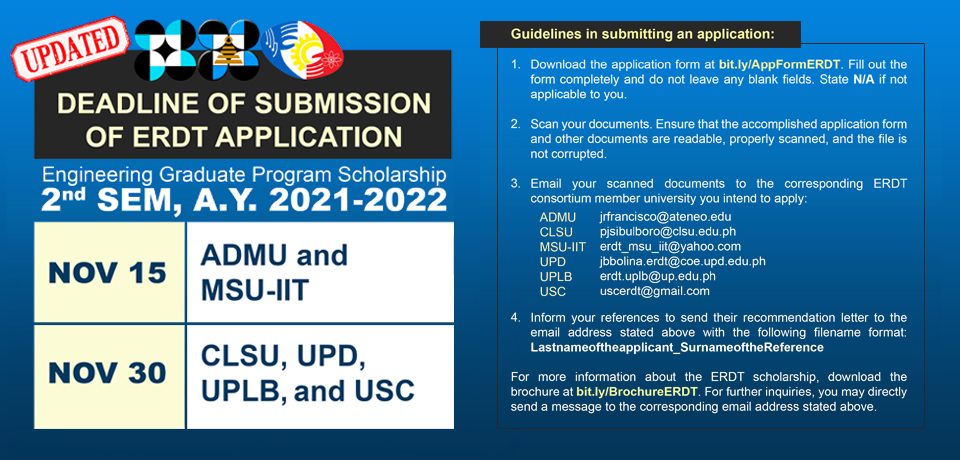Research and Development
Research and Development is one of the pillars of the ERDT program. Whereas the Human Resource Development addresses the need to produce well trained engineering researchers through graduate studies, the R&D component addresses the lack of quantity and quality research in engineering. The R&D nd HRD components or ERDT, however, are interwoven such that one cannot possibly exist without the other.
The R&D component provides opportunities to ERDT scholars to participate and work on projects related to thesis and dissertations. Such set-up promotes research works of students aligned with the National Science and Technology Plan and the Medium Term Philippine Development Plan ensuring that the researches conducted are relevant and transferrable to country’s benefit. R&D is a vehicle established to advance engineering research in the country where R&D projects are aligned with the national research agenda
The R&D is a consortium-wide activity where multidisciplinary research programs that have immediate impact are prioritized. Multidisciplinary research encourages collaborative effort among researchers from various disciplines in engineering, the sciences, and social sciences.
Management of the R&D program of ERDT is effected by the heads of each track . The R&D track heads conduct focus group discussions and roundtable discussions with academe, industry, government agencies and other stakeholders to evaluate the roadmap and agenda.

During the start of the ERDT program, there was a dedicated budget for research projects under the ERDT R&D umbrella. The track heads were in charge of evaluating the research project proposals to align with priority research areas before submitting to the Department of Science and Technology (DOST) for funding.
In 2010, it was decided that research proposals from ERDT Consortium Universities were directly submitted to DOST Philippine Council for Industry Energy Emerging Technologies Research and Developementfor evaluation and approval.


